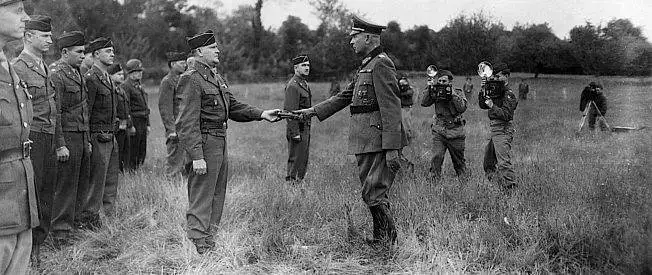When did German commanders know that Germany could not win World War II?
When did German commanders know that Germany could not win World War II? German commanders began to realize that Germany could not win World War II at different points in the conflict, depending on their roles, access to information, and strategic perspective. Several key moments contributed to this growing awareness:
Defeat at Stalingrad (1942–1943):
The German 6th Army was surrounded and destroyed in Stalingrad by Soviet forces in early 1943. This marked the first major, undeniable German defeat and signaled that the tide of the war was turning against the Axis powers.
Many German commanders, such as General Friedrich Paulus (commander of the 6th Army), began to question Germany’s chances of ultimate victory after this catastrophic loss.
Failure of the Battle of Kursk (Summer 1943):
The failure of Operation Citadel (the German offensive at Kursk) in July 1943 demonstrated that the Wehrmacht could no longer sustain offensive operations on the Eastern Front against an increasingly powerful Soviet military.
By this point, some German commanders recognized that Germany could not achieve victory, especially on two fronts.
Allied Invasion of Normandy (June 1944):
The success of the D-Day landings on June 6, 1944, and the subsequent Allied breakout from Normandy made it clear to many German military leaders that Germany could no longer hold the Western Front.
General Erwin Rommel, for instance, is reported to have believed that the war was lost after the Allies established a strong foothold in France.
Collapse of the Eastern Front (1944):
The massive Soviet offensive, Operation Bagration, launched in June 1944, destroyed much of the German Army Group Center and pushed the front lines deep into German-occupied territory.
This devastating loss further solidified the view among many German commanders that the war could not be won.
Strategic Bombing and Resource Depletion:
The relentless Allied bombing campaign severely crippled Germany’s industrial capacity and disrupted critical supply lines. By late 1944, many commanders knew that the German war economy could no longer sustain the conflict.
Albert Speer, Germany’s Minister of Armaments and War Production, recognized as early as 1943 that Germany’s ability to continue the war was severely compromised due to shortages in resources and manpower.
Key Individual Views:
Heinz Guderian: By late 1943, Guderian, an influential tank commander and strategist, doubted Germany’s ability to achieve victory due to the overwhelming material and numerical superiority of the Allies.
Erwin Rommel: Rommel became increasingly convinced in 1944 that the war was unwinnable and supported negotiating a peace settlement. Albert Kesselring: Some commanders, like Kesselring, remained optimistic longer but still recognized by late 1944 that Germany’s position was untenable.
Hitler’s Role:
Despite the mounting evidence, Adolf Hitler remained in denial about Germany’s deteriorating position, often refusing to consider strategic withdrawals or peace negotiations. This delusion prolonged the war unnecessarily and deepened the suffering on all sides.
In summary, while the realization came gradually and at different times, many German commanders understood by mid-1943 (after Stalingrad and Kursk) or certainly by 1944 (following D-Day and the Soviet offensives) that Germany could not win the war.


